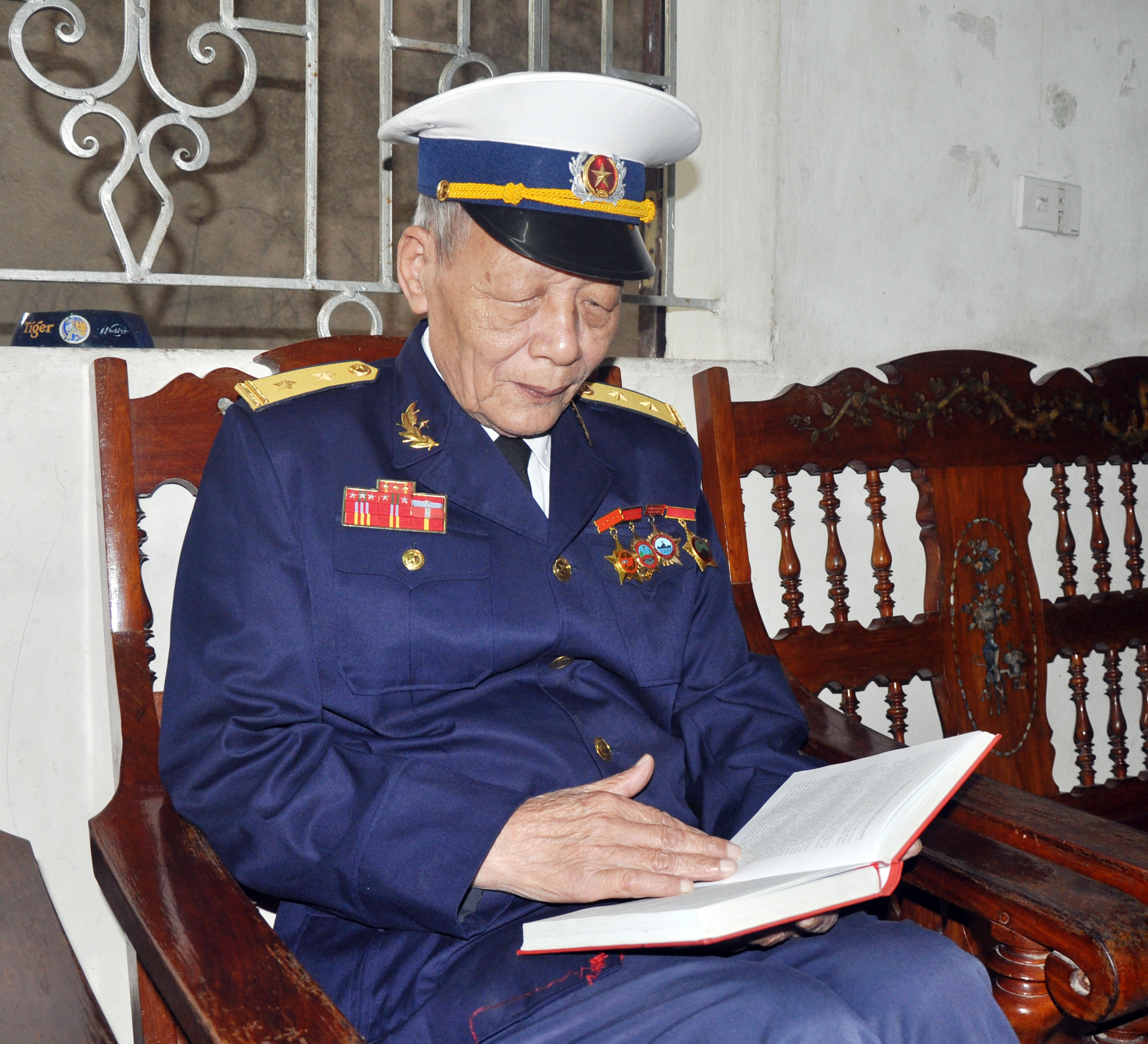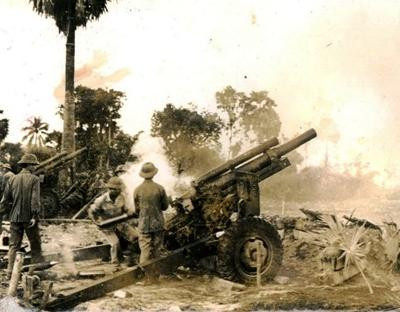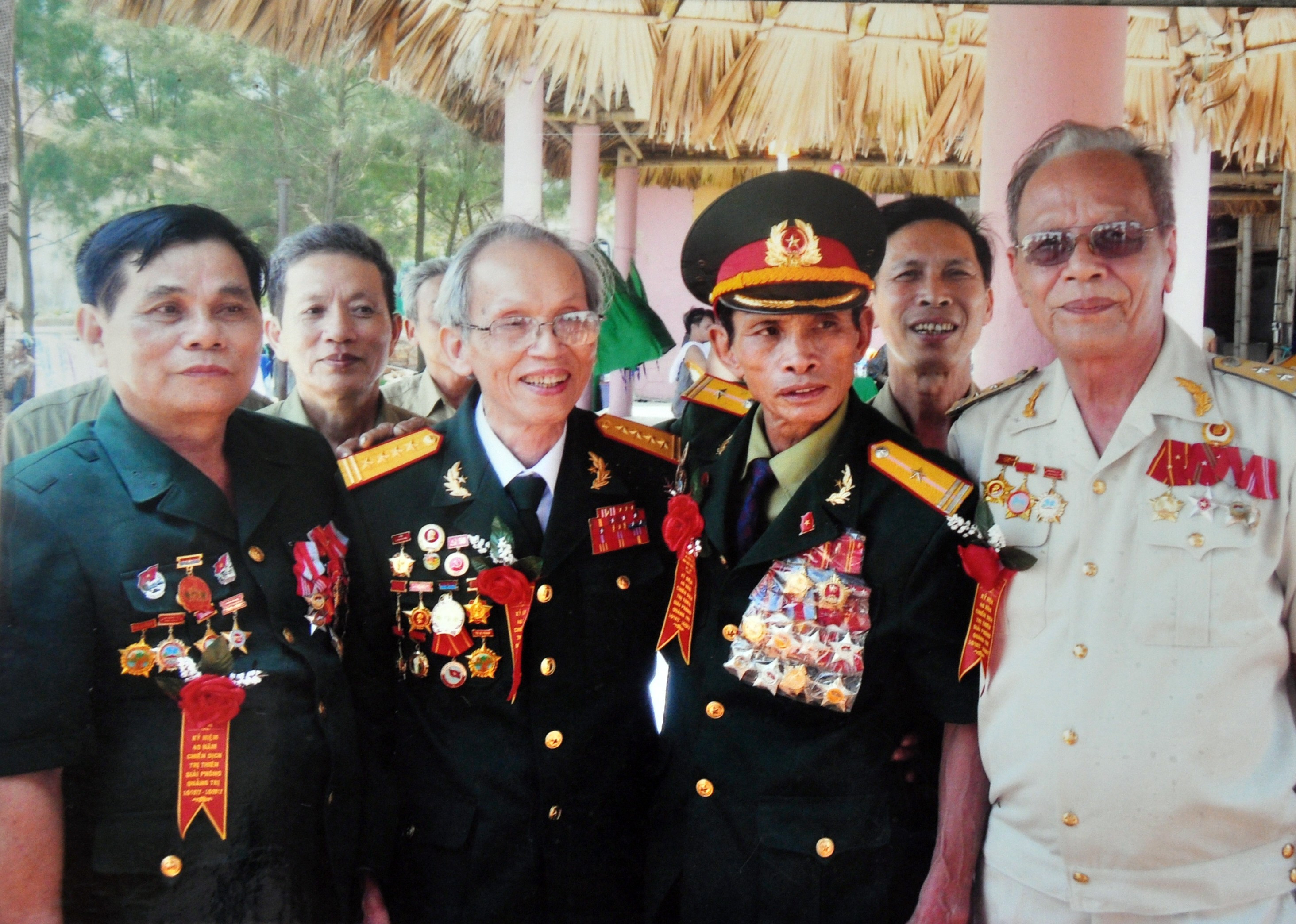Forever proud to be "Buddhist Army"
(Baonghean.vn) - For Lieutenant Colonel Tran Van Du, the days of fighting on the southwestern border front contained unforgettable memories in his nearly 30 years of holding a gun. There, he witnessed the brutality of the Khmer Rouge genocidal regime, the suffering of the Cambodian people and the fighting spirit of the Vietnamese volunteer army.
Lieutenant Colonel Tran Van Du (born in 1941), currently residing in Block 16, Hung Binh Ward (Vinh City), enlisted in the army in 1961, during the war against the US, was present in the Tri-Thien battlefield until the day the South was completely liberated (1975). In 1976, after having just moved to the North for a few months, his unit, Battalion 21, under the Navy Command, received orders to march to the Southwestern border.
 |
| Lieutenant Colonel Tran Van Du is always proud to be in the "Buddhist Army" that helped the Cambodian people escape genocide. Photo: Cong Kien |
“At that time, I was the battalion political commissar. Most of the soldiers had enlisted in 1975. They were still very young and had not yet fought, so the battalion commander was quite worried. Because before leaving, many people were allowed to go home on leave, the unit was also worried that someone would find a way to arrive late and not be able to make it to the battlefield, and the number of soldiers would be short. But when it was time to leave, no one was missed when the roll call was made. Everyone was determined to be ready to fight and sacrifice to protect the Fatherland,” Mr. Du recounted.
Participating in the strategic offensive to liberate Phnom Penh, the Vietnam People's Navy, including Battalion 21, was assigned the task of liberating the coastal provinces of Cambodia and 44 islands scattered across the Gulf of Thailand. At the same time, destroying the entire Khmer Rouge Navy.
 |
| Vietnam People's Army fights to protect the southwestern border. Photo: Archive |
“On the night of January 5, 1979, under the support of artillery and surface ships, the 21st Marine Battalion landed on Cambodian soil, carrying out the mission of liberating coastal provinces. Two days later, at the same time our main army entered to liberate Phnom Penh, the 21st Battalion attacked and liberated Kom Pong Som, then Koh Kong,” Lieutenant Colonel Tran Van Du recalled.
Next, the 21st Battalion, of which he was the Battalion Commander, carried out a sweep of the Khmer Rouge remnants, fought off raids, and helped the people of the neighboring country restore production. Forty years have passed, but the commander of this battalion is still haunted by the skeletons scattered along the rice fields, the "dead cities" without a single person, and the people who are only skin and bones or have swollen faces.
Those images were enough to show the barbarity and genocidal policies of the Pol Pot regime against the Cambodian people and the people of the southwestern border provinces of our country. From then on, hatred rose to the utmost, urging the Vietnamese Volunteer Army to fight with determination, to soon win to overthrow the genocidal regime, and bring peace to Cambodia.
After winning and liberating the coastal provinces, officers and soldiers of Battalion 21 went into the forest to find the people who had been forced there by Pol Pot to work in production. Everyone was emaciated from hunger and thirst and at first appeared afraid when they saw the Vietnamese volunteer soldiers. However, after a thorough explanation, the people here immediately believed and expressed their gratitude.
 |
| Lieutenant Colonel Tran Van Du (far right) and his comrades revisit the old battlefield. Photo: NVCC |
To save the people from starvation, the commander of Battalion 21 ordered the destruction of food warehouses and barns, slaughtered pigs and chickens, and distributed them equally to everyone. The remaining buffaloes and cows were brought back to the villages and distributed to each household for raising and serving agricultural production. Life gradually became stable again, the villages gradually revived, and livelihoods and businesses were protected. Therefore, the people of the neighboring country called the Vietnamese volunteer soldiers the "Buddhist Army".
Lieutenant Colonel Tran Van Du added: “During nearly 10 months of fighting and stationing in Cambodia, the unit had to stay in the bunker at night to avoid harassment from the Khmer Rouge remnants. After completing the mission, the unit was ordered to return home to support the northern border battlefield. Our 21st Battalion is always proud to be part of the “Buddhist Army”, contributing to helping our friendly country escape the disaster of genocide.”

